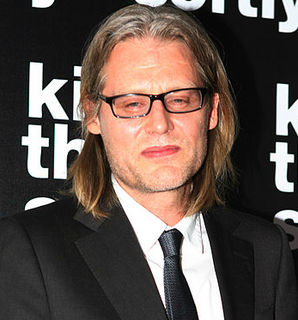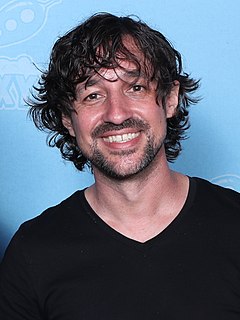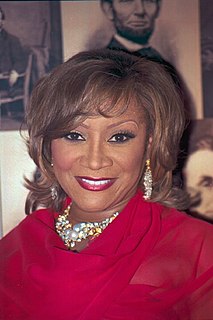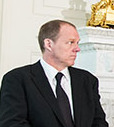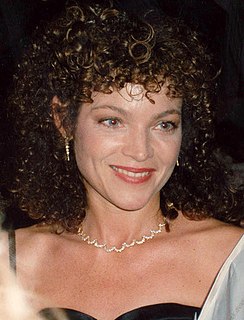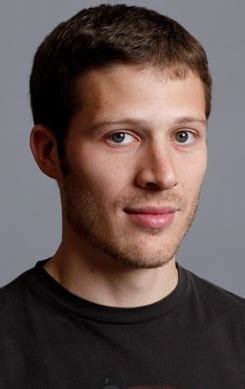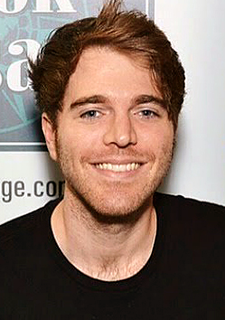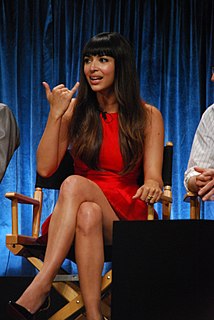A Quote by Andrew Dominik
For me, the movie's always evolving as I'm doing it. I throw things in as we shoot, and I take things out as we go. I want to create a whole life and then select the pieces that best sort of describe it later, you know? So there's a lot of wastage when I make a film.
Related Quotes
I generally go into a movie with a very strong vision, with how I want to make the film, how I want to shoot the film, how I want to edit the movie, what I want the sound to sound like. So I have a very concrete idea even if I don't storyboard it, I know exactly what I want to do once I get into the sequence. Now having said that, I try not to let that slave me to the process. So if I do storyboard a sequence I don't necessarily stick to it if I discover more exciting things on set.
Whenever I'm doing any film, there's always three different things. There's the script, which is really just a blueprint. And then, you shoot the movie and it's an entirely different experience than you would expect from reading the script. And then, there's the whole post process and the editing, and it becomes something else entirely.
I think when I start out writing, I always try to write the version of the movie that I want to go see. I don't mean it in a way that ignores the audience, but I really set out to make a movie that I want to see and that, hopefully, other people will want to go see it. So whatever's amusing to me, I guess, I throw it all in there.
Sometimes life is hard. Things go wrong—in life and in love and in business and in friendship and in health and in all the other ways that life can go wrong. And when things get tough, this is what you should do: make good art. . . . Someone on the internet thinks what you’re doing is stupid or evil or it’s all been done before: make good art. Probably things will work out somehow, eventually time will take the sting away, and it doesn’t even matter. Do what only you can do best: make good art.
We don't want to lose you Lord Rahl. We don't want to go back to way things were." She sounded on the verge of tears. "We like being able to do simple things, like make a joke, and laugh. We could never do such things before. We always lived in fear that if we said the wrong thing we would be beaten, or worse. Now that we have seen another way, we don't want to go back to that. If you throw your life away for the Midlands, then we will.- Cara
There is a sort of creative purity in an independent film, in the passion of the director, the passion of the crew. They're not getting a whole lot of money, so you know they are not there because they want to get rich. Instead, they are there because they want to make a movie. In the bigger films, I remember when I used to do those, it's just a job for a lot of people, so there is less of an intense energy devoted to the whole project.
For me, you go to university to meet lots of different people from different backgrounds. I think that's one of the most important things you get there. And you also get some sense of direction regarding what you want to do when you leave. I sort of know what I want to do in my life - I want to act and ultimately I'd like to write. And in terms of meeting people from different backgrounds, that's what you get on a film set. So the two most valuable things that university would have given me I've sort of achieved by being on a film set.
One of the things that I love when I go to a film or when I'm reading some book or whatever, is to be told a secret I thought only I knew and then someone says, "Oh my gosh, you know, too." And film can take us into private moments in a way that the theater, I think, kind of can't, and that's one of the reasons I like doing films. And the way a book can is that these little secrets and the private things that go on in our minds that maybe we haven't shared with anyone, and then someone writes it or shows it to you in a film, you think, "Oh, that's me. Oh my God, that's me, I have that secret."
When we started talking to our actors and to our directors, this is with all due respect to the film, if you want to know what we're not doing, go watch the movie. If you want to know what we're doing, it's very much steeped in the world of the comics, but it also has a life of its own and that's really what television and our films really do is that we take the best....We hope and we're very confident that this is the beginning of something that's very exciting on Netflix.
So there's that, and then there's always things you can do with the tips. Except for this, what they call the arrow tips, they'll all be non-lethal cause again we're not trying kill anybody, just sort of take control of the situation. They'll probably throw in a lot of gimmicks with the tips and trick arrows, and things like that. And ya the new, cool.
I definitely prefer real-life endings. But I do like having an ending. I hate when a movie just sort of ends and is so open-ended you feel like it wasn't finished. I appreciate leaving things up to the interpretation of the audience and letting them make decisions about where things will go in the future - but the director has to make a decision; otherwise it is sort of a cop-out.
I hate when a movie just sort of ends and is so open-ended you feel like it wasn't finished. I appreciate leaving things up to the interpretation of the audience and letting them make decisions about where things will go in the future - but the director has to make a decision; otherwise it is sort of a cop-out.
My family’s said to me from the beginning, ‘People are always going to tell you to pick what you want to be when you grow up. You take that and throw it out the window, that’s garbage. People are complicated and we love many things and we’re passionate about many things. You can be a human rights activist and also be doing these comedy plays in your community and that’s OK. All those things are a part of who you are and you can love them equally.
